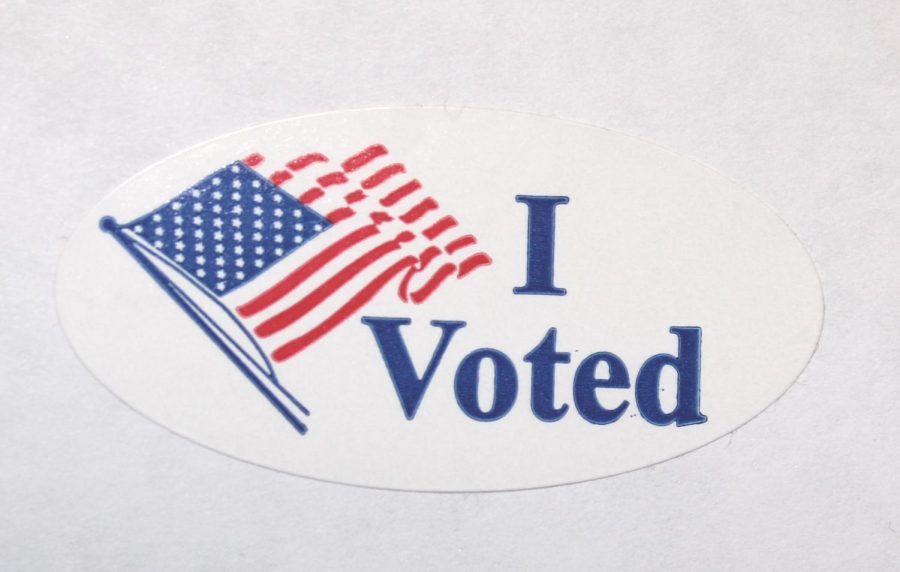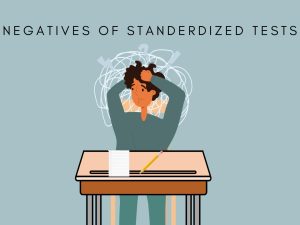Politicians, teachers encourage new generation of voters as primary elections occur
Photo Courtesy of Dwight Burdette
Voters aged 18-25 represent nearly 15% of the US population, yet only half of them are registered to vote.
May 16, 2022
For over a century, states have participated in primary elections in order to determine which candidates will be on the ballot for the midterm elections set to take place in the fall. Though they are often overlooked, past primary elections have proved to be a crucial factor in determining who will represent North Carolina and Wake County in both federal and county positions, come November. This year is no exception. The North Carolina primary elections will take place on Tuesday, May 17. As the date creeps nearer and nearer, students, faculty and politicians prepare to witness a new generation of voters.
For eligible seniors, this is the first election they will be able to vote in. Emily Salter is a senior who has been involved with multiple political organizations aimed towards teenage political participation. She shares her anticipation regarding the upcoming primaries.
“I’m very excited,” Salter said. “It’s something I have been looking forward to for a long time. I think voting is a civic duty and an easy and simple way to get involved in politics.”
In recent years, voters between the ages of 18 and 25 have been deciding factors in elections. Salter explains the impact that young people have on elections.
“Teenagers are the future of democracy,” Salter said. “Time and time again, elections are decided by the young people who decided to get registered and vote.”
This has been proven true, most famously in the 2020 presidential election, when Georgia witnessed a historic voter turnout from those ages 18-25, ultimately leading to Georgia’s shift from a historically red state to a blue one.
“I think young voters are often overlooked when it comes to campaigning and polling,” Salter said. “When a swarm of young people show up on election day, it affects the outcome in ways that candidates don’t account for.”
Joshua Cyr teaches senior civics, and in doing so, has witnessed the lack of teenage participation in elections. Cyr explains how many students are disinterested in political participation due to a lack of recognition from politicians.
“Our current political system is very complacent with ignoring the voices of younger people,” Cyr said. “My advice is to be impossible to ignore.”
However, not all political figures are ignoring the voices of the youth. North Carolina Senator Sarah Crawford strives to encourage students to cast their votes.
“It’s important for eligible teens to vote in elections for the same reasons it’s important for every eligible voter to vote,” Crawford said. “You need to have a stake in your future. Elected officials make decisions that impact you and the future of your community, state or country.”
Crawford dismisses the stigma that one vote doesn’t influence the result of an election.
“Your vote matters,” Crawford said. “Some elections, even statewide, can be decided by just a handful of votes. Your vote can help propel the candidate that best reflects the values you have across the finish line.”
Katherine Kirby has also experienced her share of politics as the campaign manager for the North Carolina House race. Kirby acknowledges how young voters can often be dismissive of primary elections, however, she discusses the impact that the youth has on election outcomes.
“If there are no young voters at the polls, you are essentially letting an older demographic decide who’s in office,” Kirby said. “Due to the political makeup of districts the winner of a primary election could easily go on to win the general election.”
In order to vote in the upcoming primaries, you must be at least 18 years old, a North Carolina resident, and cannot be serving a sentence for a felony conviction, including parole, probation or post-release supervision.
The process of casting your vote is simple, as Cyr explains.
“For the upcoming May 17 primary, the deadline to register beforehand has passed, but you are still able to participate by finding one-stop voting sites,” Cyr said. “These one-stop sites are very quick and will allow you to register and vote on the same day, just make sure you bring your NC driver’s license or other government-issued ID.”
If you aren’t able to make it in person for election day, don’t worry. Mailing in your ballot is just as simple. Civics teacher Jacara Poole explains the process that goes into voting by mail.
“To vote by mail you must complete a request form that can be found on the NCSBE website,” Poole said. “You will then be sent a ballot to complete, you will need a witness or notary to sign off on your ballot for authenticity purposes, then return your ballot to your county.”
Poole highlights the importance of teenagers in elections, and the impact that their vote has on the lives of every American.
“Teens should vote for the same reasons that anyone should vote,” Poole said. “The decisions politicians make have huge effects on the lives of Americans, so it is important to exercise the right to choose those politicians.”









